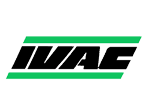 Temporary Worker Responsibility
Temporary Worker Responsibility
On April 29, 2013, OSHA launched the Temporary Worker Initiative (TWI) in order to help prevent work-related injuries and illnesses among temporary workers. The purpose of this initiative is to increase the focus on temporary workers in order to highlight employers’ responsibilities to ensure these workers are protected from workplace hazards. This is becoming an increasingly important topic for insurance carries and worker’s comp providers.
Temporary workers are suffering serious or fatal injuries, some in their first days on the job. Numerous studies have shown that new workers are at greatly increased risk for work-related injury, and most temporary workers could be “new” workers multiple times a year. They will be new workers at your facility.
For the purposes of the TWI, “temporary workers” are workers hired and paid by a staffing agency and supplied to a host employer to perform work on a temporary basis. In general, OSHA will consider the staffing agency and host employer to be “joint employers” of the worker in this situation. Joint employment is a legal concept recognizing that, in some situations, the key attributes of the traditional employer-employee relationship are shared by two or more employers in such a manner that they each bear responsibility for compliance with statutory and regulatory requirements. For example, the staffing agency often controls a worker’s paycheck and selects the host employer location where the worker will be sent. The host employer, in turn, assigns the particular work to be done each day and controls operations in the physical workplace. Both the host employer and the staffing agency have responsibilities for protecting the safety and health of the temporary worker.
Identifying Your Responsibilities for Temporary Workers
It is a fundamental principle that temporary workers are entitled to the same protections under the OSH Act as all other workers. The staffing agency and host employer must work together to ensure that OSH Act requirements are fully met and that the temporary worker is provided a safe workplace. This requires effective initial and follow-up communication and a common understanding of the division of responsibilities for safety and health. Any written contract(s) between the staffing agency and the host employer must addresses responsibilities for employee safety and health. It should be understood, however, that the contract’s allocation of responsibilities may not discharge either party’s obligations to protect employees.
The extent of the obligations each employer has will vary depending on workplace conditions and may be clarified by their agreement or contract. Their duties will sometimes overlap. The staffing agency or the host may be particularly well suited to ensure compliance with a particular requirement, and may assume primary responsibility for it. For example, staffing agencies might provide general safety and health training applicable to many different occupational settings, while host employers provide specific training tailored to the particular hazards at their workplaces. If the staffing agency has a long-term, continuing relationship with the temporary worker, it may be best positioned to comply with requirements such as audiometric testing or medical surveillance. The host employer, in turn, would be the primary party responsible for complying with workplace-specific standards relating to machine guarding, exposure to noise or toxic substances, and other workplace-specific safety and health requirements such as lockout/tagout and confined spaces.
As noted above, although the host employer typically has primary responsibility for determining the hazards in their workplace and complying with worksite-specific requirements, the staffing agency also has a duty. Staffing agencies must ensure they are not sending workers to workplaces with hazards from which they are not protected or on which they have not been trained. Agencies need not become experts on all potential hazards at the host’s workplace, but nevertheless have a duty to diligently inquire and determine what, if any, safety and health hazards are present at their client’s workplaces. For example, the agency should take reasonable steps to identify any hazards present, to ensure that workers will receive the required training, protective equipment, and other safeguards, and then later verify that the protections are in place. Sometimes this verification step is missing.
Prior to accepting temporary workers from a staffing agency, both parties should jointly review the task assignments and any job hazard analyses in order to identify and eliminate potential safety and health dangers and provide the necessary protections and training for workers. In assessing worksite hazards, host employers typically have the safety and health knowledge and control of worksite operations. Encourage the staffing agency to perform, if feasible, an inspection of the workplace to conduct its own hazard assessment or to ensure implementation of the host employer’s safety and health obligations.
It is imperative that both parties communicate with each other when a worker is injured, and to determine what measures are to be implemented to prevent future injuries from occurring. For example, if a temporary worker is injured at your worksite, you should inform the staffing agency of the injury, and the staffing agency, in turn, should follow-up about preventive actions taken. Similarly, if a staffing agency learns of a temporary worker’s injury (through, for example, the filing of a workers’ compensation claim), the staffing agency should inform you to help ensure that preventive measures are taken before additional workers are injured. Both the staffing agency and the host employer should inform temporary employees how to report injuries and illnesses and include training on the employee’s right to report workplace safety concerns. Most of the time if you are performing the day-to-day supervision of the temporary worker, you bear the responsibility of recording the injury or illness on your OSHA 300 log. Do not assume that since you are not providing the temporary employee a paycheck, that you do not have recording responsibilities.
The staffing agency has a basic duty to inquire into the conditions at the host worksite. Make sure that you work with your staffing agency to outline each other’s roles and responsibilities in order to prevent injuries at your worksite.










